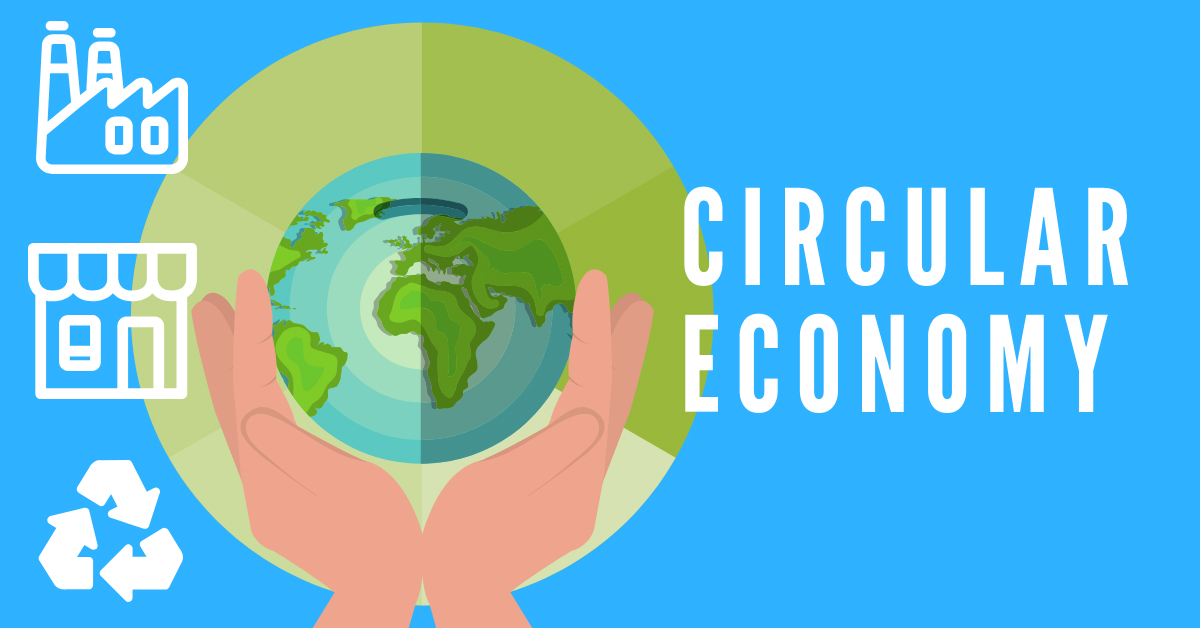Industrial trade unions are presenting their position in the same week that the European Commission publishes a second Circular Economy Package, the first of which was presented in March this year. The two packages contain proposals for EU legislation to support Europe's transition to a circular economy. They propose new rules to make almost all physical goods on the EU market, including products coming from outside the EU, more environmentally friendly, circular and energy efficient throughout their life cycle - from design to end of life.
IndustriAll Europe has welcomed the first package as an important step towards achieving the climate goals of the Green Deal and towards energy and raw materials independence. However, we strongly criticise the lack of social requirements for sustainable products, i.e. the conditions under which the products are made. We also miss any attempt to prepare and support workers in the packaging sector and the plastic industry, sectors that are affected by the transition to a circular economy. The second package does not address these shortcomings! With the delayed ‘green claims’ initiative (a regulation forcing companies to substantiate their environmental claims) and a consumer initiative on the right to repair missing, the package is also incomplete.
The trade union position
Moving towards a circular economy entails a fundamental transformation of the economy.
Like any other industrial change, the transition to a circular economy must be anticipated, managed and negotiated with workers for every aspect that concerns them. This is the core of a Just Transition, and although it has become a fully recognised principle of European policy, it is regrettable that trade unions still have to demand it.
In their position, trade unions have formulated the following key demands:
- European industry urgently needs a more circular economy to achieve its climate goals and reduce raw material dependencies.
- The circular economy must be supported by a strong and coherent industrial strategy. It also requires investment and commitment by industry to make sustainable products the norm.
- The circular economy must be fair! The transition towards a more circular economy must be anticipated with the involvement of workers and trade unions. It requires adequate resources to prepare workers for the transition and it must lead to quality jobs with good working conditions and high health and safety standards.
- Trade unions must be key players in this transition.
Empowering trade unions in shaping the circular economy
Reset.Vlaanderen, a platform bringing together Flemish trade unions and the environmental movement, in collaboration with industriAll Europe and environmental organisation Bond Beter Leefmilieu have developed a joint project to better understand the dynamics of engaging workers and trade unions in the transition to a more circular economy.
The project, funded by the European Social Fund, ran in 2021 to 2022 and initially focused on the involvement of trade unions in the transition to more circular metal and chemical industries in the Belgian region of Flanders. The project also drew inspiration from examples of good practice in other parts of Europe. Through interviews and workshops with trade unions from different EU countries, insights were gathered and combined with an in-depth study on the challenges of the transition to a circular economy. The recommendations for trade unions were published in a brochure, which will soon be available in English, German and French.
This week the project concluded with a final conference where trade unionists discussed their role in promoting and shaping a circular economy with Sara Matthieu, Member of the European Parliament.
Judith Kirton-Darling, Deputy General Secretary of industriAll Europe, comments:
"Trade unions are showing how to engage in this important debate. We are following policy and legislative developments closely, increasing our knowledge through research and debate, and are ready to advocate and defend our position as EU policy takes shape.
Building a more circular economy is an opportunity that industrial unions should not miss. Reducing European industry's dependence on imported raw materials is crucial in the current climate of global supply disruptions. But it is also about job creation. Europe still exports too much waste to countries outside Europe. A more circular economy offers the potential to create new jobs in Europe. It is our job to ensure that jobs in the circular economy are decent jobs.”
Adopted statement 'More and Fair Circular Economy towards strategic autonomy for industrial jobs and a cleaner environment': DE EN FR

.png?width=1200&height=640&rmode=max&format=jpg&quality=100)
.png?width=1200&height=640&rmode=max&format=jpg&quality=100)